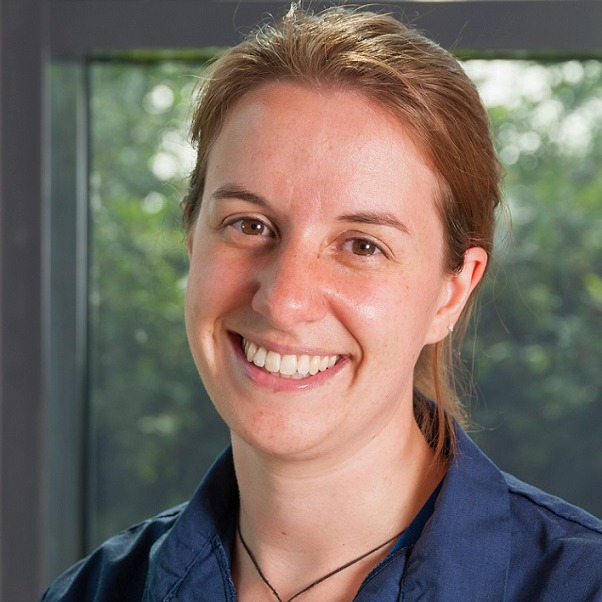Pain Management in the Horse undergoing Standing Surgery
Species
Equine
Contact Hours
9 Hours
Early Booking Deadline
Thu, 01 January, 1970
Registration Deadline
Thu, 01 January, 1970
Language
English
Discipline
Anaesthesia & Pain Management
Dentistry
Ophthalmology
Orthopaedics
Sports Medicine
Surgery
Toxicology & Pharmacology
Industry Partners
Global

Veterinary Partners
Global


Recorded: June 2021
Speaker Title Duration David Bardell & Alison Bennell Sedation Protocols for Standing Surgical Restraint 125 min David Bardell & Alison Bennell Pain Management for Standing Surgery 160 min David Bardell & Alison Bennell Routine Loco-Regional Anaesthetic Techniques 140 min David Bardell & Alison Bennell Less Common Loco-Regional Anaesthetic Techniques 120 min
ONLINE LECTURE SERIES CONTENT
This 4 part webinar series aims to provide a refresher of pharmacological and anatomical aspects relevant to providing optimal conditions to permit standing surgery in horses, before building on this foundation to describe and discuss the efficacy and practicality of different techniques and protocols.
The course starts by considering options for sedation protocols and provision of analgesia before describing in detail the neuroanatomy and performance of loco-regional anaesthetic techniques. Both presenters have extensive experience of equine anaesthesia and analgesia and welcome attendees’ questions and own experiences for discussion.
Module 1 – Sedation Protocols for Standing Surgical Restraint
Webinar 1 – Basic Concepts & Techniques
Vital to the success of any standing surgical restraint is an understanding of the pharmacology of the agents at our disposal, particularly as relatively few are generally available. This webinar will review some basic pharmacokinetic and pharmacodynamics principles before discussing individual agents and how they may be used to maximum effect.
Webinar 2 – Personal Experiences & Literature Review of Protocols
A literature search will return many publications describing intravenous infusion protocols for prolonged sedation in horses. Differing combinations of drugs, rates of administration, physiological consequences and efficacy, both in terms of providing sedation and analgesia are often reported. This literature base will be discussed in light of the presenters’ own experiences.
Module 2 – Pain Management for Standing Surgery
Webinar 1 – Pain Physiology
Pain is a complex phenomenon and providing conditions which permit surgical procedures to be performed in conscious horses can be challenging. Understanding how pain pathways work is key, not only to performing safe and humane surgery, but to minimising the impact of surgery in the recovery period.
Webinar 2 – Pharmacological Management of Pain
This webinar will consider both established and more novel pharmacological agents available for provision of analgesia in horses. The available evidence for their utility and efficacy will be examined and discussed.
Module 3 – Routine Loco-Regional Anaesthetic Techniques
Local anaesthetic agents are very versatile and powerful tools in the clinician’s armoury. The first webinar will cover how these drugs exert their effects and the clinically relevant differences in the more commonly available ones. In the second webinar, some of the more routinely performed techniques, applicable to performing surgical procedures involving the head and distal limbs in conscious horses, will be reviewed.
Webinar 1 – Pharmacology of Local Anaesthetic Agents
Webinar 2 – Review of Commonly Performed Techniques
Module 4 – Less Common Loco-Regional Anaesthetic Techniques
Webinar 1 – Review, Experiences & Limitations of Less Common Techniques
Compared with small animal practitioners, equine clinicians are at a disadvantage regarding the range of local anaesthetic techniques which can be performed safely and effectively. As more procedures are attempted in standing horses, interest increases in developing a wider range of effective loco-regional techniques. This webinar will look at less commonly utilised techniques as well as more novel blocks targeting the upper half of the limbs, neck, back, flank and perineal regions which have yet to gain wide acceptance.
Alison graduated from the University of Glasgow in 2007 and initially completed a 12 month equine internship in the South of England. She then worked for almost 9 years in a referral practice in Devon where she carried out first opinion equine work as well as leading the anaesthesia and medicine caseloads. She holds the RCVS Advanced Practitioner certificate in Equine Medicine. Alison was appointed as a lecturer in Equine Anaesthesia in 2017 and is currently studying towards the European Diploma in Veterinary Anaesthesia and Analgesia.
David graduated from the University of Liverpool in 1998. After 8 years in predominantly equine practice, he returned to Liverpool as a clinical anaesthetist in 2006, gained the RCVS Certificate in Veterinary Anaesthesia in 2007 and the European College of Veterinary Anaesthesia and Analgesia Diploma in 2011 and was subsequently appointed as Senior Lecturer in Veterinary Anaesthesia.
In 2016, David stepped out of his full time clinical and teaching role to undertake a 3 year period of research into the molecular mechanisms involved in tendon disease, within the Department of Musculoskeletal Biology. Returning to clinical duties in 2020, he subsequently became Head of the Large Animal Anaesthesia service.
David is a European and Royal College of Veterinary Surgeons Specialist in Equine Anaesthesia and Analgesia and is a member of the ECVAA examination committee. David has a wide range of clinical interests, has conducted several research projects within the Equine Hospital, and published on a range of anaesthesia and critical care subjects, as well as presenting his research, and being invited to speak, at several international conferences. He is also a member of the ‘Vets with Horsepower’ charity, which delivers CPD lectures to equine vets worldwide, raining money for veterinary and human charities in the process.
Veterinary Student
Online Lecture Series
USD 85.00
Qualified Vet
Online Lecture Series
USD 415.00
Intern/Resident (Requires proof of status)
Online Lecture Series
USD 315.00
Vet Nurse/Vet Tech (Requires proof of status)
Online Lecture Series
USD 315.00
If the options you are looking for are unavailable, please contact us.
No tax will be added unless you are a UK taxpayer
Choose currency at checkout
















